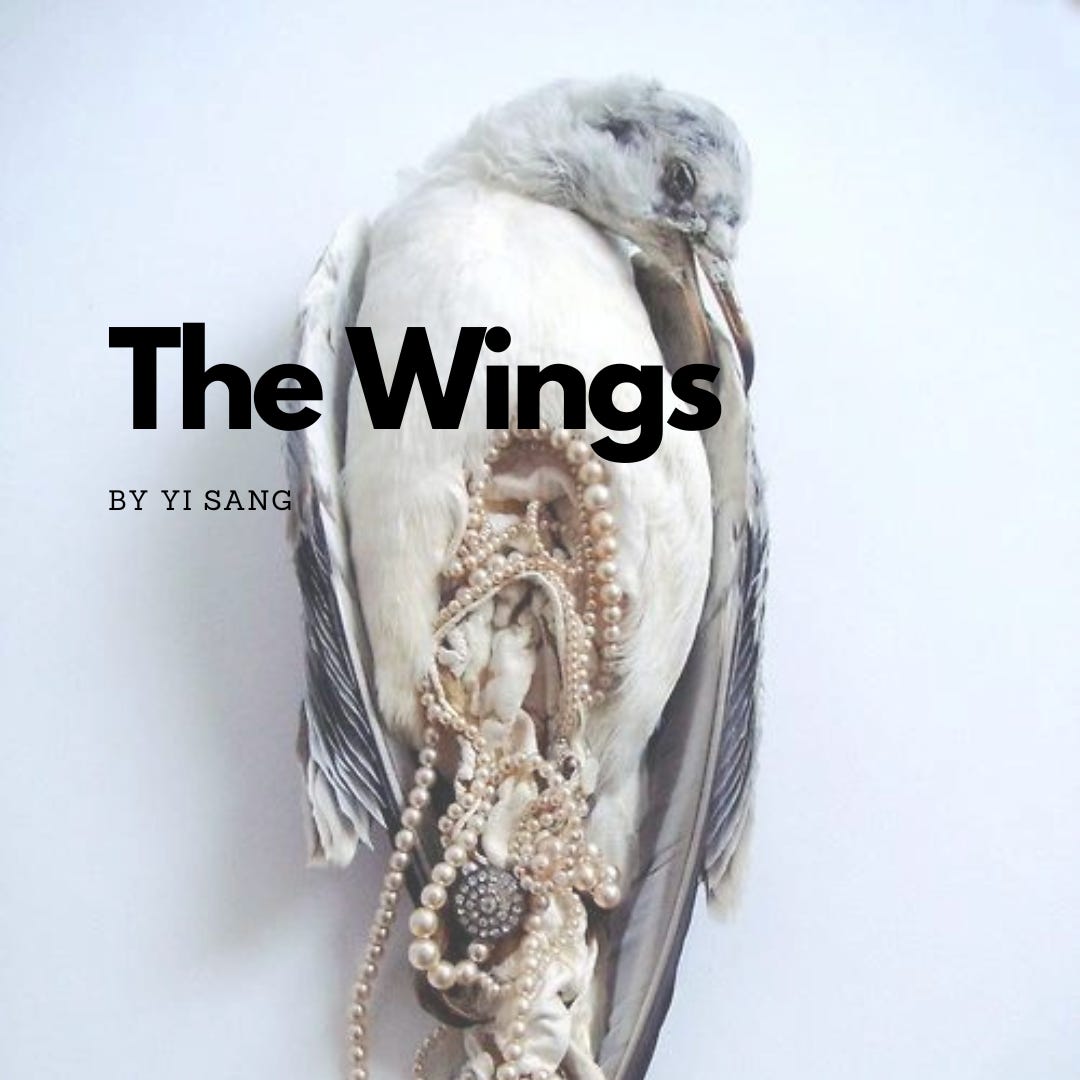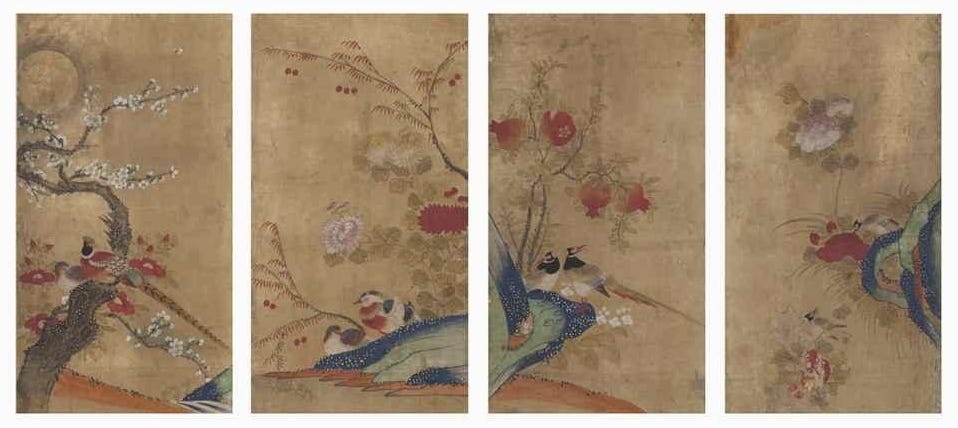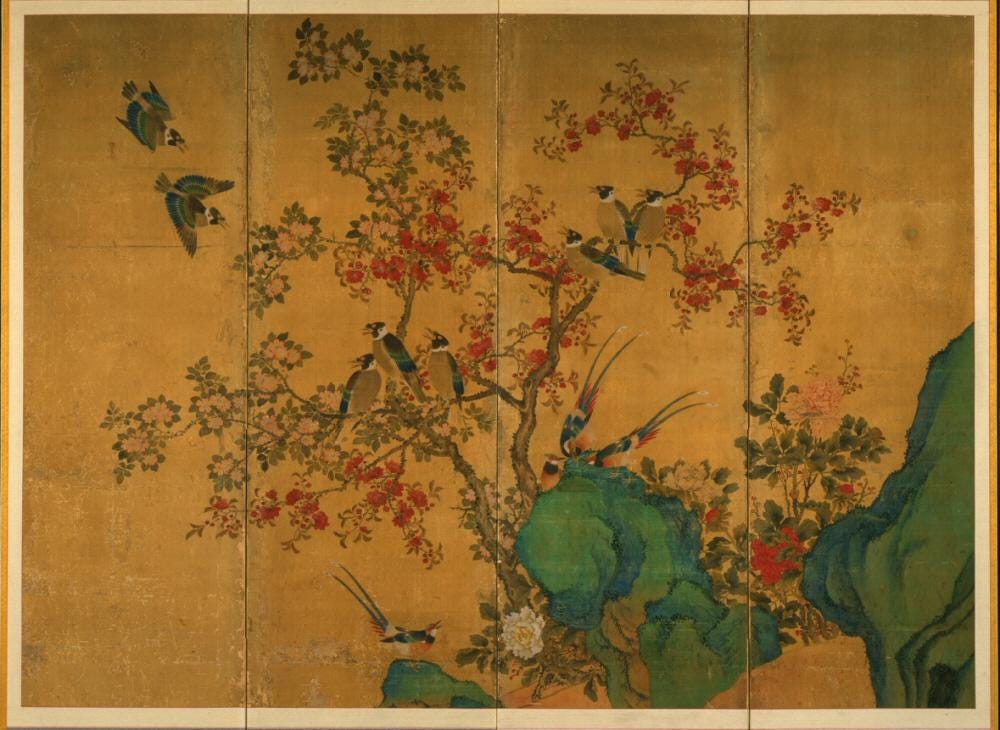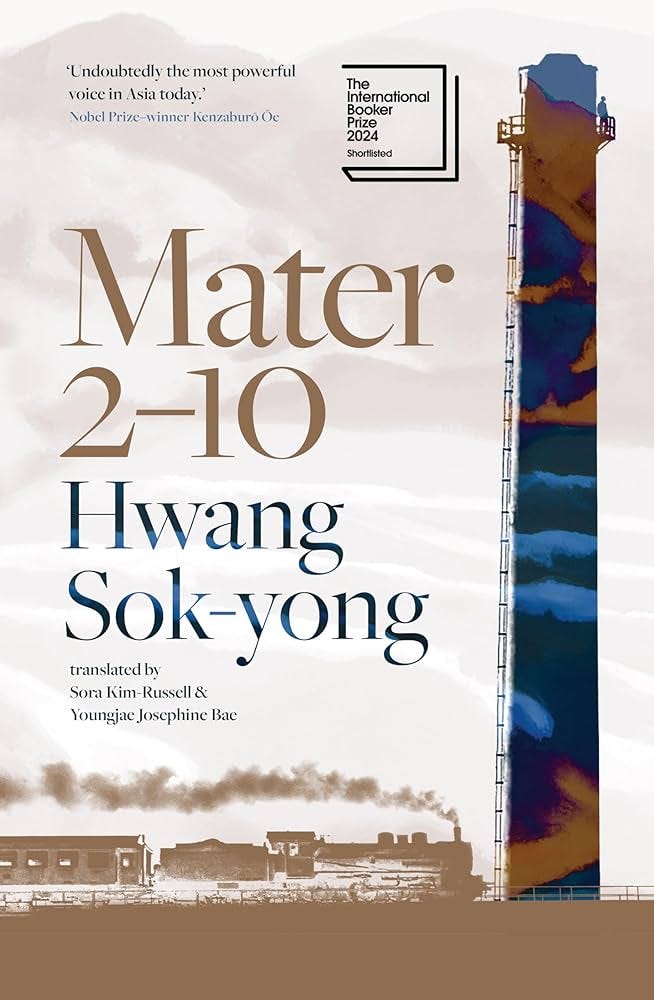K-LIT No. 2: The Wings by Yi Sang
"As nicotine seeps into my stomach infested by round-worms, a sheet of white paper opens in my head."
About the Author: Yi Sang
Translated by: Ahn Jung-hyo and James B. Lee
Summary
“‘The Wings’, a dark allegory of infidelity and self-deception, probes the ambiguities of perception and language through an unreliable narrator who bears an uncanny resemblance to the author himself.” - From the Goodreads synopsis of Modern Korean Literature #91 날개 Yi Sang, 이상
A bit about The Wings
This short story, about 40 pages in my little book, is fascinating. I’d first read of it in an essay by Kelly Y. Jeong (Capital, Gender, and Modernity in Colonial Korean Literature). She describes Yi Sang as “the ultimate modernist and experimental poet, writing avant-garde, apolitical works that seemingly transcend temporality”. She describes The Wings as “presenting an escape from the seemingly omnipresent specter of capitalism through its infantilized protagonist.” Jeong writes, “(The innate desire for things), sometimes confused with a pursuit of happiness, also assumes that one has a future and, thus, is motivated to continue living, regardless of how the system exploits all who live in it.”
After reading Jeong Jia’s Happiness, I thought it an interesting coincidence that in the two pieces of Korean literature we’ve read, a central theme is the question of happiness and the consequences of society’s rigid definition, and relentless pursuit, of it.
Let me share this excerpt from an essay written by Charles Montgomery for Korean Literature in Translation (the blog site).
Near the outset, the narrator notes, “a mirror is a practical thing only when it reflects one’s face.” Yet this narrator can never come face to face with himself or reality. He lurks in the “dusky” corners of the world, despite his nyctalopia, which would suggest brighter environments. He is young, at 26, but seems immeasurably older, partly because Yi is a master at describing long torments in compact prose. The narrator lurches from darkness in his bedroom, to darkness in the outside world, only through the prism of his wife’s bedroom, and the guests she frequently entertains. The narrator is only able to navigate the outside world by virtue of money which his wife awards him in an alarmingly ritual and impersonal way (Here, a perceptive reader can imagine feminism and capitalist critique intersecting). The wife’s money is a necessity for the narrator, but he despises (and loves) it. Initially he won’t spend the money, once he even tosses it into the toilet that, at the time, probably didn’t mean a porcelain fixture. Obversely, without the money, he is helpless.
Craft & Quotes:
I’m going to skip the craft talk and discuss briefly the importance of reading translations as translations. This is something I think about a lot, especially in my own research, but also in my attempts to better understand my Korean half. Claire Gullander-Drolet’s essay, The Translation Politics of Han Kang's The Vegetarian; or, The Task of the Reader of the Work in (English) Translation, makes a persuasive argument for reading translated literature as translations as opposed to works simply written in English. She uses Han Kang’s The Vegetarian as an example. It was fascinating to learn that Kang’s translator, Deborah Smith, had only just learned Korean, beginning her studies three years before translating this International Booker Prize-winning novel. In her essay, Gullander-Drolet analyses two “textured moments,” or moments where there are “awkward turns of phrase or the names of culturally specific landmarks, event, or individuals; it can also mean words in the source language phonetically rendered in English, or, in the case of multilingual literature, untranslated text.”
The essay and her analysis are worth the read, but I need to refocus—because Yi Sang’s The Wings is full of textured moments.
Here’s an example:
Have you ever seen a stuffed genius?
‘박제가 되어 버린 천재’를 아시오?’
This is the opening sentence!!
And my interpretation was: have you ever seen a genius who was full of himself? Or maybe: have you ever seen a smart ass?
BUT it turns out that this phrase, in Korean, means something a little different.
“Being stuffed means that something is really dead even though it retains the shape of a living thing. So, the question asks whether we know of a genius whose life force has been lost. It also points to his own sense of loss and anguish as a genius writer who has lost his life force.”
- Prof. Bang Min-ho, Dept. of Korean Literature and Language, Seoul National University
In fact, if I put the question into Google Translate, I get: Do you know the ‘genius who was taxidermied’?
Gullander-Drolet’s suggestion that we read translated literature as translation, looking closely at these textured moments, is critical. It challenges us to take off our Western, English-centric lenses and engage with the language the text was originally written in.
Here are some more quotes I loved:
“The sunshine, as large as a wrapping cloth in the morning, shrinks to the size of a handkerchief later and then slips out of the room.”
“Is it an insult, my theory that the whole of every woman in real life is a widow? Good-bye.”
“I sat with nothingness in a booth and sipped a cup of hot coffee.”
About the Ending:
It’s amazing. The character feels an itch in his armpits, and “imitation wings” emerge. It’s the kind of ending that shows us the internal conflict intensified, far from resolved. And it’s the kind of ending where I’m not sure he’s able to go in the direction he’s wishing to go in, there, in the end, but—the travesty might be that he’s sprung those phantasmic wings at all. Brilliant.
I enjoyed this video. It’s very helpful if you’re a little confused by story or you want to know a little more about Yi Sang. In the video, Prof. Peterson says, “If you launch into Yi Sang, you launch into a hopeless morass that you can never get out of.” I found that oddly comforting.
K-Pop Recommendation:
Currently obsessed with Trot 트로트 music and Lee Sun Hee in particular–so much so she now makes a reoccurring appearance in my novel :) This song is one of my favorites. Also, her look slays.
K-Lit Recommendation:
I’m currently reading Mater 2-10 by Hwang Sok-yong and translated by Sora Kim-Russell and Youngjae Josephine Bae. It was shortlisted for the International Booker Prize 2024. It has a lot of the elements of translated Korean literature I’ve come to accept. Social commentary, folk-tale-like stories embedded in the present-moment narrative. I also think this translation is stellar. I read the translators’ note at the beginning of the book (always worth the read!) and was impressed by the linguistic obstacles they maneuvered to stay faithful to the Korean language and culture while keeping the prose accessible and beautiful. In their note, they wrote, “We looked for ways to decolonise our translation,” and I loved that. I can see it now as I read, but I wouldn’t have noticed (or known to notice) if I hadn’t read the note.
K-Drama Recommendation:
Reply 1988 - I love this show. It’s fun and heartfelt, and I’ve found so educational re: Korean culture in the 1980’s. It’s been so helpful for me as I write my novel (which is set in early 1990’s), and at times has even been a nostalgia trip. There are snacks and textures and hairstyles from Korea in 1988 that I experienced growing up in the 90’s, in the U.S.
K-Yum Recommendation:
I made kimchi for the first time last month, and it wasn’t bad. One key, I think, is using quality salt. The second is the amount of salt, and I’ll be looking to improve that in the next batch. My mom didn’t seem impressed by my kimchi but my friends enjoyed it, and I liked it, too. It wasn’t as good as my mom's kimchi, but it was comparable to what I’ve had in some Korean restaurants.
Here’s the recipe I used. I’m recommending it because it really was easy, and great for someone a little intimidated by the idea of making kimchi (like I was!).
https://www.maangchi.com/recipe/easy-kimchi
One Last Thing:
It’s taken awhile for me to come back to this project after dropping my first post. I’ve been working, writing my novel, training for a marathon, and now I’m back to my full-time PhD coursework. But this project is important to me. I hope I can post more regularly. I’ll do my best.








I loved this! I’m so fascinated with the differences in translation and what transliteration is. I often even note them when watching KDrama with subtitles